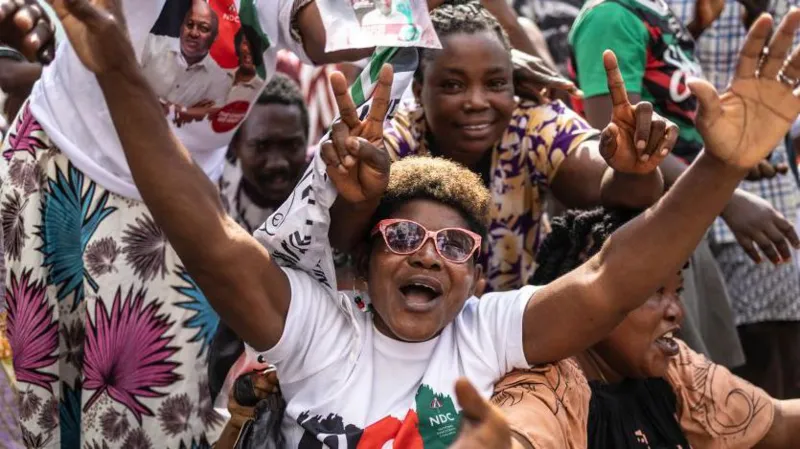Supporters of John Mahama are celebrating across Ghana after his victory in Saturday’s presidential election.
According to the BBC, Mahama, the opposition leader and former president, won 56.6% of the votes, defeating Vice-President Mahamudu Bawumia, who got 41.6%.
This is the largest win in Ghana in 24 years, with voter turnout at 60.9%, confirmed by Ghana’s electoral commission.
Mahama, now 65, called the win a “new beginning” and celebrated Ghana’s historic choice of Jane Naana Opoku Agyemang as the first female Vice-President.
Speaking to cheering supporters, Mahama promised change and a fresh direction for the country. He thanked Bawumia for conceding defeat early, which helped maintain peace, though some were frustrated by delays in announcing the official results, the BBC reported.
The election happened during Ghana’s worst economic crisis in decades, with unemployment, rising living costs, and environmental damage from illegal gold mining being key issues.
Mahama won key regions, like Bono and Central, which previously voted for the ruling party, showing that Ghanaians were eager for a change, according to the BBC.
After Bawumia conceded, Mahama’s supporters flooded the streets, waving flags, honking horns, and celebrating. One supporter in Kumasi told the BBC he hoped this victory would bring jobs and lower food and fuel prices.
Despite the peaceful election overall, there were incidents of violence. Two people were killed, and angry protests destroyed an electoral office in Damongo. The BBC highlighted that these tensions reflect the high stakes of this election.
Mahama previously served as Ghana’s president from 2012 to 2017 but faced criticism for economic struggles and corruption during his term.
However, many voters now believe he can lead differently, with promises to transform Ghana into a “24-hour economy.”
Mahama will be sworn in as president on January 7, 2025. As the BBC pointed out, this marks a comeback for Mahama and a continuation of Ghana’s history of peaceful political transitions.
Credit : BBC
https://www.bbc.com/news/articles/cqjzv9k8zjjo

